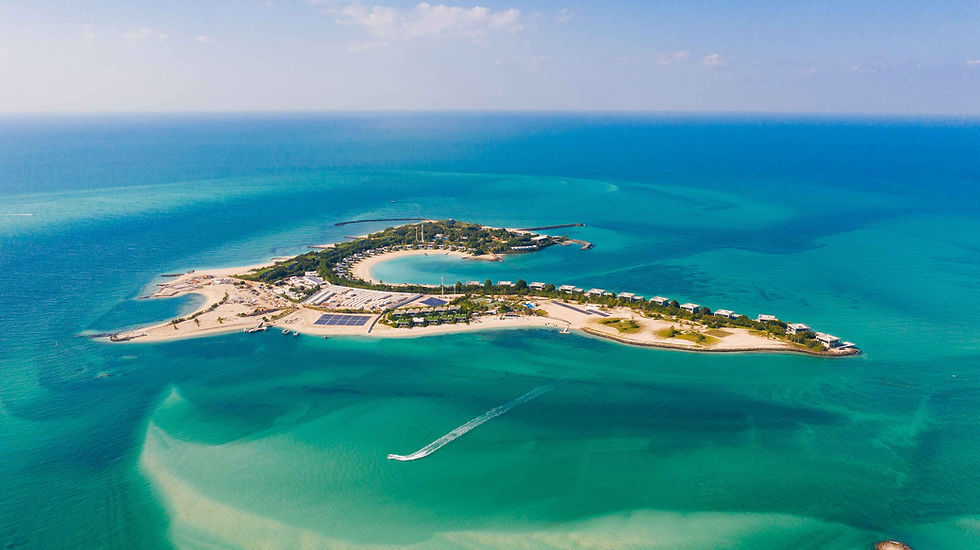What is the difference between freezone and offshore entities in the UAE?
- Shaumik Saha

- Mar 13, 2021
- 3 min read
Updated: Mar 20, 2021
Did you know? A freezone entity is very much an onshore entity (albeit with some offshore characteristics). Learn more about the differences below.

The UAE provides an extremely innovative and pro-business environment for it's business-owners and investors. Several novel entity types and asset management structures may be found here that many foreign investors may not be familiar with.
One common area of confusion we see is people assuming freezone and offshore companies to be the same. Although neither of them are considered 'mainland' companies they are both very different entity types and serve different purposes.

What is a freezone company in the UAE?
Economic free trade zones, commonly referred to as just 'freezones' are jurisdictions that allow for more flexible trading terms and special incentives often for specific industries such as DTEC for technology companies and JAFZA for trading activities to encourage trade and entrepreneurship in these areas. These are still UAE entities and liable to abide by commercial laws applicable on a federal level.
The main attractions of establishing an entity in one of the UAE’s Free Zones is that there are no foreign ownership restrictions and companies are governed by an independent Free Zone Authority, who often have more favorable policies that mainland laws.
Some key characteristics of freezone companies are as follows;
Usually the cheapest and quickest option for setting up UAE companies
Allows 100% foreign ownership
Typically allows100% repatriation of profits
Corporate and personal income tax exemptions (although such companies must file VAT)
A wide variety of available trading, services and consulting activities
No mainland office required
Subsidized serviced office spaces available for startups and SMEs
Some points to note about UAE freezone companies;
Selection of the right freezone is important as not all freezones are perceived to have enough substance and credibility. Setting up an entity with little substance in a jurisdiction which is not very credible can hamper your prospects of developing banking relationships, engaging high profile clients, bidding on government tenders, etc.
Most taxation and commercial laws on a federal level still apply to freezone companies. Please seek appropriate legal advice from professionals that thoroughly understand both federal legislation and that of your freezone jurisdiction.

What is an offshore company in the UAE?
Offshore companies are entities set up with the intention of operating outside its registered jurisdiction. As such, offshore companies in the UAE are not permitted to carry out business in the UAE. Such companies cannot sponsor UAE residence visas for its owners or employees in the UAE either.
There are many reasons why one may potentially want to set up an offshore entity:
to better manage assets for example, separately owning IP in an offshore company to separate it from the risks associated with your operating entities)
access a stable, tax-friendly, and secure jurisdiction. All offshore entities in the UAE are exempt from corporate and income taxation.
an offshore entity can serve as a vehicle to raise and manage foreign funding
separate and protect assets as required
Other benefits of offshore companies are as follows:
Local Real Estate Ownership: The JAFZA Offshore Company for example is the only offshore company that is permitted to directly own local Dubai real estate. Most properties in Dubai can be owned by JAFZA offshore companies but both Free Zone and developer approval are required;
Shares in Local Companies: Despite a general prohibition on Offshore Companies conducting business with persons resident in the UAE, the JAFZA authorities do allow Offshore Companies to hold the shares of both Free Zone and Onshore (LLC) Companies. Documents for use in the UAE, Bahrain, Saudi Arabia and Qatar do not need to be attested.
Local Bank Account: An Offshore Company can hold multi-currency bank accounts in the UAE to carry out routine international transactions;
Shareholder/Director details are maintained discreetly: The names of shareholders and directors do not have to be disclosed on a public register;

So where does the difference lie exactly?
Offshore companies are entities set up with the intention of operating outside its registered jurisdiction. Such companies cannot carry out business within the UAE, and are primarily beneficial as asset management structures in one way or another. A freezone entity however is very much an onshore company (albeit with some offshore characteristics). You do not need a local sponsor to set up a business and can own 100% of the business, but can still carry out business in the UAE within the permitted jurisdictions. Other benefits include the ability to sponsor your own residence visa as the business owner of a freezone entity.
Contact us for company setup in Dubai and the UAE.


![Residency by setting up a business- The 11 best countries in 2023 [UPDATED June 2023]](https://static.wixstatic.com/media/8df5ef_e25e86b823d74bb291619e61361f6c26~mv2.jpg/v1/fill/w_980,h_552,al_c,q_85,usm_0.66_1.00_0.01,enc_avif,quality_auto/8df5ef_e25e86b823d74bb291619e61361f6c26~mv2.jpg)
![UBO Regulations in the UAE [2021 UPDATES and everything business-owners need to know]](https://static.wixstatic.com/media/8df5ef_d1642bd19b4b45d287e45fe5ef0ed227~mv2.jpg/v1/fill/w_980,h_551,al_c,q_85,usm_0.66_1.00_0.01,enc_avif,quality_auto/8df5ef_d1642bd19b4b45d287e45fe5ef0ed227~mv2.jpg)
Comments